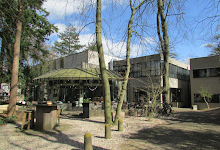Archive number: 78
Title: Russian Roulette
Main Album: Focus (1985)
Track number: 1
Genre: Progressive Rock Instrumental
Studio: Studio Spitsbergen, Zuidbroek, Groningen, The Netherlands (mixed at Dureco Studios, Weesp, The Netherlands)
Length: 05' 50”
Composer: Thijs van Leer
Musicians: Jan Akkerman - Synthesiser Guitar, drum machine; Thijs van Leer – Keyboards inc piano and synthesisers; Tato Gomez – Bass; Fairlight programmed by Ed Staring.
Producer: Ruud Jacobs with Jan Akkerman, Thijs van Leer and Theo Balijon
Engineer: Emile Elsen, Jan Akkerman and Theo Balijon
Label: Mercury (Phonogram)/Vertigo
Date of recording/release: Recorded 1985 Released LP/CD -1985 CD – 1989
Alternative version: None
Notes: This is the popular Focus style but without the yodelling. The track is introduced with what appears to be a synthesised guitar, slow and moody, backed by synthesised keyboards and a drum machine (00:00-00:52). It moves to a guitar-led section (00:53-01:54) where the piano can be heard backing up the main theme. At 01:55 a faster section with synthesised timpani cuts across things (01:55-02:33) before a move back to the slower yearning melody (02:34-03:33). The quicker piece is then repeated (03:34-04:13). At 04:13 we move into another melodic section (04:13-05:30) that picks up on some earlier themes before an abbreviated quick-paced segment comes in for the last time but soon fades (05:31-05:50). Perhaps the Russian part of the title acknowledges a debt to Tchaikovsky or someone similar.
Note Russian Roulette (from Wikipedia)
The term is used for a potentially lethal game of chance in which participants place a single round in a revolver, spin the cylinder, place the muzzle against their head and pull the trigger. Russian suggests a country of origin and roulette refers to the element of risk taking, the spinning of the revolver's cylinder being reminiscent of the spinning of a roulette wheel. The game's form can be as varied as the participants or their motives (displays of bravado, suicide, etc), but typically a single round is placed in a six-shot revolver resulting in a 1 in 6 (c 17%) chance of the revolver discharging the round. The revolver's cylinder can either be spun again to reset the game conditions, or the trigger can be pulled again. Using revolvers with fewer chambers (typically 5) or increasing the number of rounds are variations that increase risk.
Legends abound regarding its invention. Most, predictably, are set in Russia or occur among Russian soldiers. In one, 19th century Russian prisoners are forced to play the game while prison guards bet on the outcome. In another version, desperate and suicidal Russian Army officers play the game to impress each other. Whether Tsarist officers actually played it is unclear. If the game originated in real life behaviour not fiction, it is unlikely that it started with the Russian military.
In Russian literature a book entitled A Hero of our time by M Lermontov (1840, translated Nabokov 1958) mentions Russian Roulette. Russian roulette was made famous worldwide by 1978 movie The Deer Hunter, which features three soldiers captured during the Vietnam war and forced to play Russian roulette as their captors gamble on the results. Their captors demand an especially brutal variation of the game: continuing until all but one contestant is killed. The game takes place in a bamboo room above where other prisoners are held, so that the losers' blood drips down on future contestants. Several teen deaths following the movie's release caused police and the media to blame the film's depiction of Russian roulette for inspiring the youths.























No comments:
Post a Comment